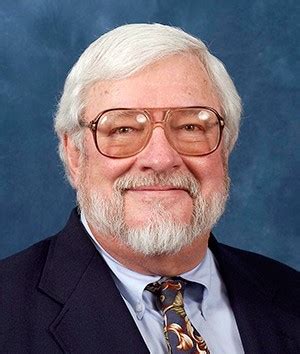A Quote by Lyndon B. Johnson
It means an educational system which does not simply equip the students to adjust to society, but which enables the student to challenge and to modify, and at times reject, if necessary, the received wisdom of his elders.
Related Quotes
When we look at the astonishing material achievements of the West. we see these things as the result, not of compulsion or government action or the superior wisdom of a few, but of that system of competition and free enterprise, rewarding success and penalising failure, which enables every individual to participate by his private decisions in shaping the future of his society.
I think, however, that there isn't any solution to this problem of education other than to realize that the best teaching can be done only when there is a direct individual relationship between a student and a good teacher - a situation in which the student discusses the ideas, thinks about the things, and talks about the things. It's impossible to learn very much by simply sitting in a lecture, or even by simply doing problems that are assigned. But in our modern times we have so many students to teach that we have to try to find some substitute for the ideal.
The regime of control tightens inexorably in our schools, many of which now have video cameras, police patrols, chain-link fences, random unannounced locker searches, metal detectors, drug-sniffing dogs, networks of informants, undercover police posing as students, and a comprehensive system of passes so that there is a record of each student's authorized whereabouts at all times. What a perfect preparation for life in a prison or a totalitarian society!
?"Intellect is the knowledge obtained by experience of names and forms; wisdom is the knowledge which manifests only from the inner being; to acquire intellect one must delve into studies, but to obtain wisdom, nothing but the flow of divine mercy is needed; it is as natural as the instinct of swimming to the fish, or of flying to the bird. Intellect is the sight which enables one to see through the external world, but the light of wisdom enables one to see through the external into the internal world.
Most of all we need an education which will create an educated mind. This is a mind not simply a repository of information and skills, but a mind that is a source of creative skepticism, characterized by a willingness to challenge old assumptions and to be challenged, a spaciousness of outlook, and convictions that are deeply held, but which new facts and new experiences can always modify.
Are our ways of teaching students to ask some questions always correlative with our ways of teaching them not to ask - indeed, to be unconscious of - others? Does the educational system exist in order to promulgate knowledge, or is its main function rather to universalize a society’s tacit agreement about what it has decided it does not and cannot know?
You can have large projects and implement them by means of a few of the smallest things. Or you can use weak means that are more effective than strong ones, as Paul also said in his First Letter to the Corinthians. [...] The wisdom of discernment redeems the necessary ambiguity of life and helps us find the most appropriate means, which do not always coincide with what looks great and strong.
The fact, however, to which I want to call attention is that the master of Judo never relies upon his own strength. He scarcely uses his own strength in the greatest emergency. Then what does he use? Simply the strength of his antagonist. The force of the enemy is the only means by which that enemy is overcome.

































